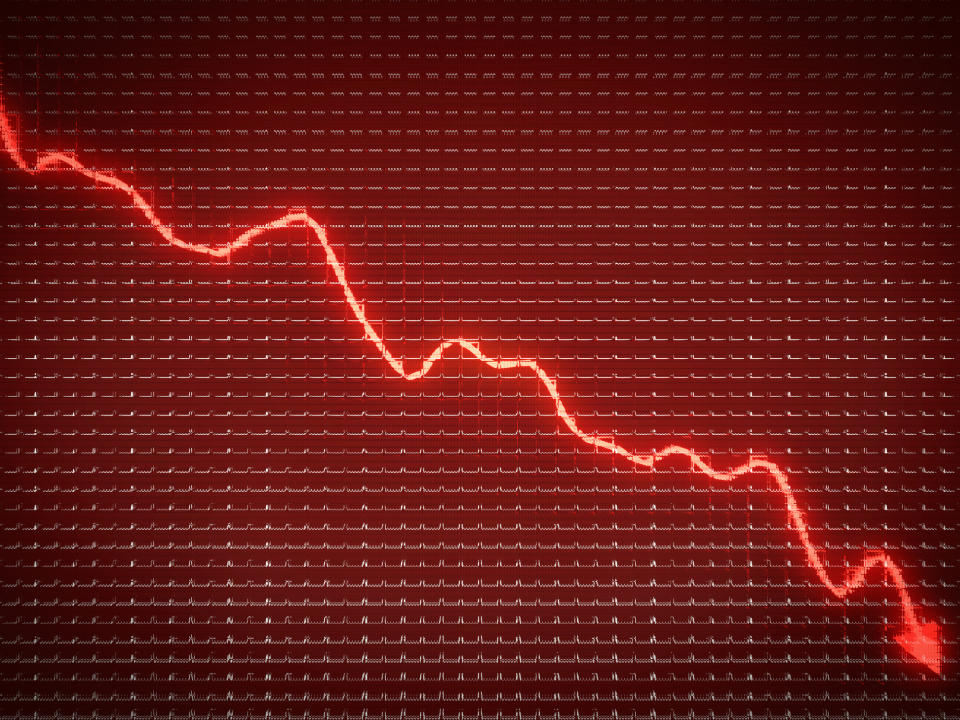3 Stocks to Buy Ahead of the Next Market Crash
If history is any guide, the stock market is due for a major crash soon. Nothing goes up forever, after all. There's no way to predict what the market's going to do on any given day, but we asked three of our Motley Fool contributors which stocks they think are worth buying as part of a broader capital preservation strategy.
Here's why they picked Johnson & Johnson (NYSE: JNJ), McDonald's (NYSE: MCD), and General Motors (NYSE: GM).

Image source: Getty Images.
Built to last
George Budwell (Johnson & Johnson): If there's any publicly traded company that knows how to weather a storm, it's healthcare giant Johnson & Johnson. Incorporated in 1887, J&J has gone on to build a bonanza of world-class brands, including Band-Aid, Benadryl, Listerine, and Tylenol, among many, many others. And that's just the company's consumer healthcare segment. J&J also sports one of the most productive pharmaceutical pipelines in the world, as well as a top-notch medical device segment. The point is that J&J is an essential part of the global healthcare landscape, making it one of the safest stocks you can own.
J&J has been going through a series of enormous challenges over the past few months, such as the scandal involving its baby powder and the loss of exclusivity for top-selling arthritis medication Remicade. The stock, though, has managed to shrug off these headwinds to gain a respectable 5.28% so far this year. Quite frankly, the market rarely turns a blind eye to these kinds of major risk factors, especially among blue-chip healthcare companies.
So, why does J&J get a pass? There are two likely reasons. First off, it has one of the best dividend programs among large-cap stocks. As proof, it's raised its dividend for 56 consecutive years, and its trailing payout ratio of 63% is among the lowest within all of big pharma. Secondly, J&J has repeatedly found ways to bounce back from patent expires, regulatory setbacks, and clinical miscues to deliver market-beating value for its shareholders. So, if you're searching for a stock to buy ahead of the next crash, this titan of the healthcare space should definitely be on your radar right now.
A sturdy business and a great dividend
Keith Noonan (McDonald's): Championing a restaurant stock that trades at roughly 22 times the year's expected earnings and isn't far removed from its lifetime highs is best done with some context. Even more explanation is probably in order when the backdrop of that recommendation is a pursuit of stocks that are worth buying ahead of a potential market crash. That said, Mickey D's has qualities that have made it historically resilient during periods of downturn, and it continues to look well-positioned to deliver market-beating performance.
The Golden Arches' budget-focused menu and get-in-get-out dining offerings allow its business to thrive even amid macroeconomic malaise. Recall that McDonald's was one of the top-performing large-cap companies during the 2008 crash, and its stock gained roughly 5.6% in that year while the S&P 500 sank 38.5%. That's eye-catching evidence that the company wasn't feeling the squeeze from customers' tightened purse strings. More recently, as the S&P 500 index dropped roughly 14% across the final quarter of 2018, McDonald's stock rose roughly 6.5% -- as pricing strength, progress on its store revamp initiative, and indicators that it's making headway with the millennial and Generation Z demographics increased investor confidence in the business's outlook.
McDonald's dividend component further bolsters its defensive credentials. Shares yield roughly 2.6% at current prices, relatively low compared to its levels over the last decade. That's due to the stock's strong performance in recent years, but the company has increased its payout annually for 42 years running and will likely keep its growth streak alive. McDonald's earnings multiples might look a bit high, but the company's sturdy business, great history of returning cash to shareholders, and meaningful progress on its modernization initiatives make it a formidable defensive stock that offers unusually high growth potential.
More recession-proof than you think
Jeremy Bowman (General Motors): It's almost always better to buy a stock after a market crash than before it, but if I had to buy one stock for market crash resilience, GM would be high up on my list.
Though cyclical stocks like automakers aren't often thought of as recession-proof, the Chevy maker is in a better position than most. Today, the stock already looks cheap at a P/E of 6.1 and sports a healthy dividend yield of 3.9%, which is well funded by its current cash flow as its payout ratio is just 35% based on free cash flow.
GM also appears to be well-prepared for a recession. In fact, the auto cycle is already past its peak as the company saw North American vehicle sales decline by 2.4% last year and overall car sales fell 12.7%, though about half of that slide was due to the sale of its European business.
In preparation for a potential recession and to focus on higher-margin trucks and crossover models, GM announced layoffs of 15% of its salaried staff last November, or about 14,000 employees. That cost-cutting should help support continued profits even if a recession causes auto sales to drop more sharply. That move, as well as GM's overall solid execution, puts it in position to take market share from faltering rivals like Ford, who are more likely to suffer should a recession hit. That means GM has a good chance of emerging from a recession in a stronger position than it's in today, making it a good buy before a recession or a market crash arrives.
More From The Motley Fool
George Budwell owns shares of Johnson & Johnson. Jeremy Bowman owns shares of Ford and General Motors. Keith Noonan has no position in any of the stocks mentioned. The Motley Fool recommends Ford. The Motley Fool has a disclosure policy.

 Yahoo Finance
Yahoo Finance 